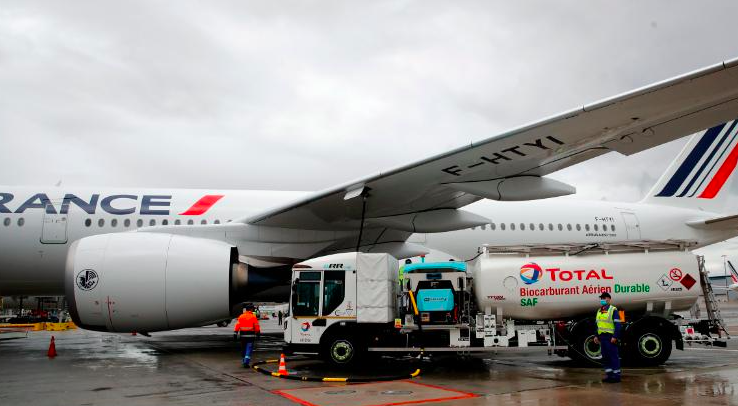- What companies have pledged to use SAF when it is more readily available
- When we can expect SAF to be substituted for regular jet fuel

More than 50 airlines, oil companies and other companies, including Delta (DAL), BP (BP) and Boeing (BA), pledged on Wednesday to replace 10% of global jet fuel supply with sustainable aviation fuel (SAF) by 2030. Produced mainly from recycled food and agricultural waste, such as used cooking oil, SAF is a type of biofuel that cuts greenhouse gas emissions by 80% compared to conventional jet fuel, and is viewed as critical to reducing aviation’s fast-rising carbon emissions.
Given that electric and hydrogen-powered planes won’t be available for at least another decade, even for short-haul flights, SAF “holds one of the most important keys to decarbonizing aviation,” said Matteo Mirolo, aviation policy officer at Transport & Environment, a green campaign group in Europe.
Who will pay is unclear. Germany’s Lufthansa (DLAKY) says fewer than 1% of its passengers currently make use of an option to offset their CO2 emissions by paying more for their tickets to cover the extra cost of using SAF.


